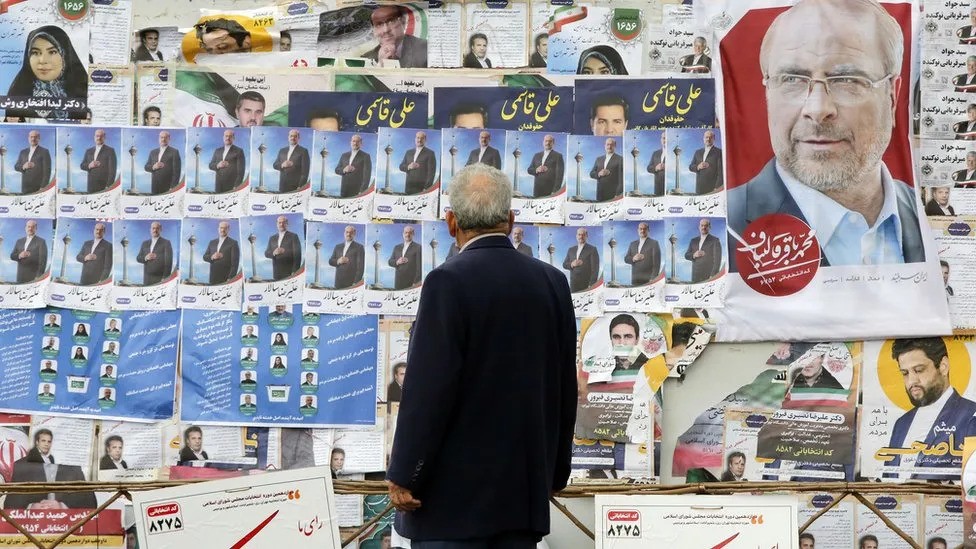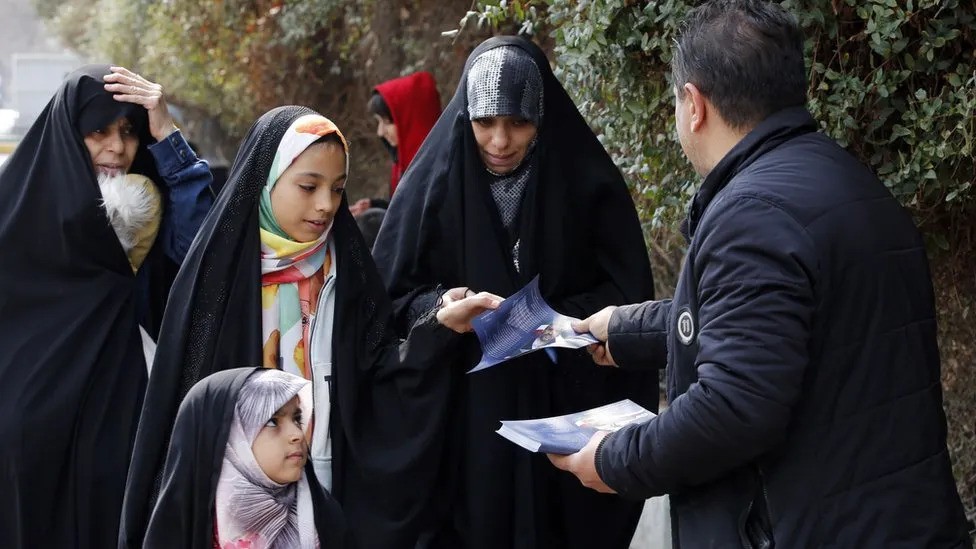Iran Prepares For Low Election Turnout As Appeals For Resistance Vote Go Unheeded
Iran prepares for low election turnout as appeals for resistance vote go unheeded. Iran is set to hold its initial elections since the widespread anti-government protests of 2022 this coming Friday.
Author:Dexter CookeReviewer:Hajra ShannonMar 01, 20243.5K Shares274.9K Views

Iran prepares for low election turnout as appeals for resistance vote go unheeded. Iran is set to hold its initial elections since the widespread anti-government protests of 2022 this coming Friday. The upcoming polls will consist of two distinct categories: one for parliamentary members and another for members of the Assembly of Experts.
The latter group holds significant responsibilities, including appointing, dismissing, and overseeing Iran's Supreme Leader, who is the nation's most influential figure and serves as the commander-in-chief. These elections are widely viewed as a pivotal examination of the Islamic Republic's regime legitimacy.
Is There A Choice?
In Iran, candidates vying for the presidency, parliament, and the Assembly of Experts must gain approval from the Guardian Council, a body comprised of clerics and jurists, with significant input from individuals appointed by the current Supreme Leader, Ayatollah Ali Khamenei.
Following the contentious presidential election of 2009, marked by widespread protests and a harsh crackdown on dissent, candidates who voiced even mild criticism of the government's handling of the protests, endorsed reformist agendas or questioned the fairness of elections were disqualified. This included four former presidents and numerous other prominent political figures.
For the upcoming parliamentary election, a record-breaking 15,200 candidates have received approval from the Guardian Council to contest the 290 available seats. However, only 30 candidates from the reformist faction, out of those who applied, have been given the green light - an unusually low number.
Conservatives have maintained dominance in the parliament since 2004 and are anticipated to secure similar results this time around. In past parliamentary elections, reformists made efforts to secure representatives aligned with their views among the approved candidates and consistently urged citizens to participate in the electoral process.
However, for the first time, they have declared their refusal to partake in what they perceive as an "empty, non-competitive, unjust, and ineffective" election for the betterment of the country's administration.
Will It Change Anything?
When it comes to social freedoms and economic conditions, voters may find that elections have a limited impact on effecting change. The key decision-maker on these matters isn't the parliament or the president, but rather the Supreme Leader. Ayatollah Khamenei holds the authority to shape Iran's foreign policy, which significantly influences the economic landscape, and he has shown little inclination to compromise on social freedoms.
At present, individuals approved by the Supreme Leader hold sway over the government, parliament, judiciary, and the Assembly of Experts. With the Guardian Council's disqualification of reformist and moderate candidates, many anticipate a low voter turnout on Friday.
Comparing the past 11 parliamentary elections reveals that the most recent one in 2020 saw the lowest turnout at 42%. Before that, turnout had consistently exceeded 50%, reaching 62% in 2016.
The 2021 presidential election marked a new low in turnout, with approximately 49% of eligible voters participating. Additionally, there were around 3.7 million "invalid" ballots cast - the second highest tally after Ebrahim Raisi, the victorious candidate - a record for any presidential poll since the 1979 Islamic Revolution.
Concurrently, Iran has witnessed an uptick in nationwide protests, with significant movements emerging in 2017 and 2019, both met with severe government crackdowns. Another cause for concern for the conservative-led government is the shift in sentiment among staunch supporters of the Islamic Republic.
Traditionally active in elections, they have grown increasingly critical of government policies. This demographic, which forms the bedrock of Iran's power structure, now asserts that government consolidation and the rise of revolutionary factions aligned with the leadership have failed to bring about meaningful change or reform.
Even conservative students occasionally granted audiences with Ayatollah Khamenei, to voice grievances about deteriorating economic and social conditions. They criticize what they perceive as expedient government policies and a perceived lack of action towards the West and Israel.
To bolster turnout among his followers, the Supreme Leader has emphasized the religious obligation of voting, declaring, "Elections are a duty, and anyone who opposes the elections is opposing the Islamic Republic and Islam."
While authorities assert that the elections will be conducted fairly, the reality of past practices raises doubts about their sincerity.
What Do Voters Think?
Despite the abundance of electoral advertisements lining the streets, the prevailing atmosphere in Iran lacks enthusiasm, signaling widespread voter apathy. Government surveys indicate that half of the respondents were unaware that two elections were underway.
The 2022 protests, sparked by the tragic death of Mahsa Amini while in the custody of morality police for wearing an "improper" hijab, were brutally suppressed by the government. The crackdown resulted in hundreds of fatalities and thousands more injured. Many of the detained protesters remain incarcerated, with some facing severe sentences, including the death penalty, following what human rights activists have decried as "sham trials."
Following these protests, the political and social climate in Iran became even more oppressive than before. Simultaneously, the economic situation continues to worsen by the day, leaving many struggling to put food on the table.
The Central Bank of Iran recently disclosed an inflation rate of 56% for the last month of autumn, after six months of silence on the matter. The government's inability to fulfill its economic pledges, coupled with its foreign policies causing successive shocks to Iran's fragile economy - already burdened by severe sanctions imposed by Western powers over Iran's nuclear program - has only added to public discontent and despair.

Dexter Cooke
Author
Dexter Cooke is an economist, marketing strategist, and orthopedic surgeon with over 20 years of experience crafting compelling narratives that resonate worldwide.
He holds a Journalism degree from Columbia University, an Economics background from Yale University, and a medical degree with a postdoctoral fellowship in orthopedic medicine from the Medical University of South Carolina.
Dexter’s insights into media, economics, and marketing shine through his prolific contributions to respected publications and advisory roles for influential organizations.
As an orthopedic surgeon specializing in minimally invasive knee replacement surgery and laparoscopic procedures, Dexter prioritizes patient care above all.
Outside his professional pursuits, Dexter enjoys collecting vintage watches, studying ancient civilizations, learning about astronomy, and participating in charity runs.

Hajra Shannon
Reviewer
Hajra Shannona is a highly experienced journalist with over 9 years of expertise in news writing, investigative reporting, and political analysis.
She holds a Bachelor's degree in Journalism from Columbia University and has contributed to reputable publications focusing on global affairs, human rights, and environmental sustainability.
Hajra's authoritative voice and trustworthy reporting reflect her commitment to delivering insightful news content.
Beyond journalism, she enjoys exploring new cultures through travel and pursuing outdoor photography
Latest Articles
Popular Articles
